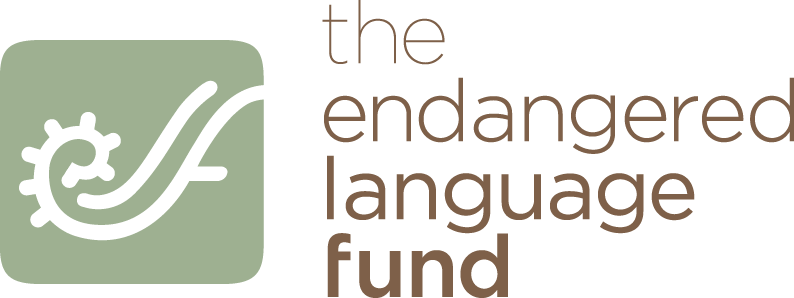Language Legacies Grant Recipients - 2016
Alexander Akulov
Kamchatka Ainu Introductory Course and Dictionary
This project, recipient of the Isenberg Award, will create both a 20-25 lesson introductory course on Kamchatka Ainu and a Russian-Ainu / Ainu-Russian dictionary. The course will focus on traditional Ainu vocabulary, and also on more modern terms, helping to make the language relevant to contemporary culture.
Pius Wuchu Akumbu - University of Buea
Teacher training and production of literacy materials
Over six months, this project will enable five local teachers to create culturally relevant texts for instruction in STEM fields and the arts, creating invaluable pedagogical materials for the Babanki language.
Jordan Ball - Seneca Nation of Indians
Seneca Archival Research
This project will allow Seneca researchers to collect and digitize Pell manuscripts from the National Anthropological Archives, a rich source of historical language and cultural data. Aside from the old vocabulary lists and accounts of 19th-century life, these manuscripts also contain previously unseen ceremonial instructions and information.
Rosemary G. Beam de Azcona- National School of Anthropology and History
Tlacolulita Zapotec: Working with the last guardians of Zapotec prehistory
Working with students from the National School of Anthropology and History, this project will continue elicitation, transcription, and revitalization of Tlacolulita Zapotec. This will include recording natural conversations and making videos of culturally important events.
Sheryl Bernardo-Hinesley - University of Massachusetts Amherst
Documentation of Cavite Chabacano
This project will produce audio recordings and transcriptions of conversations about community festivities and traditions in Cavite Chabacano, a Spanish-based Creole. The documentation materials will then be made available to the public as part of the University of Massachusetts’ Digital Humanities Project.
Katherine Bolaños & Jorge Emilio Rosés Labrada - University of Amsterdam & University of British Columbia
Documentation of Tinigua
This project will gather ethnohistorical texts and traditional knowledge along with linguistic data, and archive collected information at the National Archive in Colombia and the Archive of the Indigenous Languages of Latin America. There is only one remaining speaker of the underdocumented and underdescribed Tinigua language, so this research is both timely and crucial.
Jessica Coon & Pedro Mateo Pedro - McGill University & University of Maryland
A Collection of Narrative Texts in Chuj
Building on previous documentation in collaboration with native Chuj speakers, this project will transcribe recordings of historical, religious and cultural narratives and compile them into a volume for publication. The project will also yield a descriptive introduction to the orthography and grammatical properties of Chuj.
Flávia de Freitas Berto, Giovana Ribeiro Pereira, Guilherme Ramos Cardoso & Josy Marciene Moreira Silva - Universidade Estadual Paulista, Universidade Estadual de Campinas & Universidade Federal do Maranhão
Documentation of Guajá Language
This project will document the Guajá language and train speakers to assist in documentation efforts. It also aims to better assess the language’s level of endangerment, and to examine orthographic, geographic and sociolinguistic diversity within the language. By training native speakers to assist in preservation, this project will increase the perceived value of the language and empower the local community.
Chris Donlay - San Jose State University
Transcription of Khatso Recordings
Building off extensive local fieldwork, this project will produce transcriptions, translations and glosses of more than two hours of recorded spontaneous speech and traditional stories, as well as narrated demonstrations of traditional sewing and straw-stool making. The results will be published online and added to the local community’s archive in order to provide a foundation for future language revitalization efforts.
Gabriel Garcia Salido & Inocencia Arellano - Universidad Autonoma de Mexico & the Foundation Seed
Documentation of Naturally Occurring Speech in Southwestern Tepehuan
This project will produce a diverse corpus of Southwestern Tepehuan speech, including folklore, jokes, history, personal narratives and botanical knowledge. Recordings will be made of conversations, group discussions, monologues, interviews and community meetings, which will then be transcribed, translated and glossed. By training and involving the community in documentation efforts, this project will also increase local interest in language preservation and teaching.
Sarah Lundquist & Laura C. RedEagle - University of Wisconsin-Madison & Ho-Chunk Nation
Kiigus: Developing distance resource materials for at-home Ho-Chunk language learners
This project will create a blog to provide an approachable and accessible online platform for Ho-Chunk language study. The blog will feature audio-visual recordings of Ho-Chunk speakers discussing personal and family history, tribal history, perspectives on language use and change, and day-to-day life. The blog will also allow learners to ask questions and receive timely responses.
Jorge Emilio Rosés Labrada & Francia Medina - University of British Columbia & Universidad Central de Venezuela
(Socio)Linguistic Documentation of Sapé, an almost extinct language of Southern Venezuela
This project will travel to Sapé communities along the Paragua River, in order to identify speakers and semi-speakers, collect linguistic data when possible, and garner information about the history of the region and of the Sapé people. Results will be shared with community members who identify as Sapé and wish to learn more about their language and culture.
Kamchatka Ainu Introductory Course and Dictionary
This project, recipient of the Isenberg Award, will create both a 20-25 lesson introductory course on Kamchatka Ainu and a Russian-Ainu / Ainu-Russian dictionary. The course will focus on traditional Ainu vocabulary, and also on more modern terms, helping to make the language relevant to contemporary culture.
Pius Wuchu Akumbu - University of Buea
Teacher training and production of literacy materials
Over six months, this project will enable five local teachers to create culturally relevant texts for instruction in STEM fields and the arts, creating invaluable pedagogical materials for the Babanki language.
Jordan Ball - Seneca Nation of Indians
Seneca Archival Research
This project will allow Seneca researchers to collect and digitize Pell manuscripts from the National Anthropological Archives, a rich source of historical language and cultural data. Aside from the old vocabulary lists and accounts of 19th-century life, these manuscripts also contain previously unseen ceremonial instructions and information.
Rosemary G. Beam de Azcona- National School of Anthropology and History
Tlacolulita Zapotec: Working with the last guardians of Zapotec prehistory
Working with students from the National School of Anthropology and History, this project will continue elicitation, transcription, and revitalization of Tlacolulita Zapotec. This will include recording natural conversations and making videos of culturally important events.
Sheryl Bernardo-Hinesley - University of Massachusetts Amherst
Documentation of Cavite Chabacano
This project will produce audio recordings and transcriptions of conversations about community festivities and traditions in Cavite Chabacano, a Spanish-based Creole. The documentation materials will then be made available to the public as part of the University of Massachusetts’ Digital Humanities Project.
Katherine Bolaños & Jorge Emilio Rosés Labrada - University of Amsterdam & University of British Columbia
Documentation of Tinigua
This project will gather ethnohistorical texts and traditional knowledge along with linguistic data, and archive collected information at the National Archive in Colombia and the Archive of the Indigenous Languages of Latin America. There is only one remaining speaker of the underdocumented and underdescribed Tinigua language, so this research is both timely and crucial.
Jessica Coon & Pedro Mateo Pedro - McGill University & University of Maryland
A Collection of Narrative Texts in Chuj
Building on previous documentation in collaboration with native Chuj speakers, this project will transcribe recordings of historical, religious and cultural narratives and compile them into a volume for publication. The project will also yield a descriptive introduction to the orthography and grammatical properties of Chuj.
Flávia de Freitas Berto, Giovana Ribeiro Pereira, Guilherme Ramos Cardoso & Josy Marciene Moreira Silva - Universidade Estadual Paulista, Universidade Estadual de Campinas & Universidade Federal do Maranhão
Documentation of Guajá Language
This project will document the Guajá language and train speakers to assist in documentation efforts. It also aims to better assess the language’s level of endangerment, and to examine orthographic, geographic and sociolinguistic diversity within the language. By training native speakers to assist in preservation, this project will increase the perceived value of the language and empower the local community.
Chris Donlay - San Jose State University
Transcription of Khatso Recordings
Building off extensive local fieldwork, this project will produce transcriptions, translations and glosses of more than two hours of recorded spontaneous speech and traditional stories, as well as narrated demonstrations of traditional sewing and straw-stool making. The results will be published online and added to the local community’s archive in order to provide a foundation for future language revitalization efforts.
Gabriel Garcia Salido & Inocencia Arellano - Universidad Autonoma de Mexico & the Foundation Seed
Documentation of Naturally Occurring Speech in Southwestern Tepehuan
This project will produce a diverse corpus of Southwestern Tepehuan speech, including folklore, jokes, history, personal narratives and botanical knowledge. Recordings will be made of conversations, group discussions, monologues, interviews and community meetings, which will then be transcribed, translated and glossed. By training and involving the community in documentation efforts, this project will also increase local interest in language preservation and teaching.
Sarah Lundquist & Laura C. RedEagle - University of Wisconsin-Madison & Ho-Chunk Nation
Kiigus: Developing distance resource materials for at-home Ho-Chunk language learners
This project will create a blog to provide an approachable and accessible online platform for Ho-Chunk language study. The blog will feature audio-visual recordings of Ho-Chunk speakers discussing personal and family history, tribal history, perspectives on language use and change, and day-to-day life. The blog will also allow learners to ask questions and receive timely responses.
Jorge Emilio Rosés Labrada & Francia Medina - University of British Columbia & Universidad Central de Venezuela
(Socio)Linguistic Documentation of Sapé, an almost extinct language of Southern Venezuela
This project will travel to Sapé communities along the Paragua River, in order to identify speakers and semi-speakers, collect linguistic data when possible, and garner information about the history of the region and of the Sapé people. Results will be shared with community members who identify as Sapé and wish to learn more about their language and culture.

